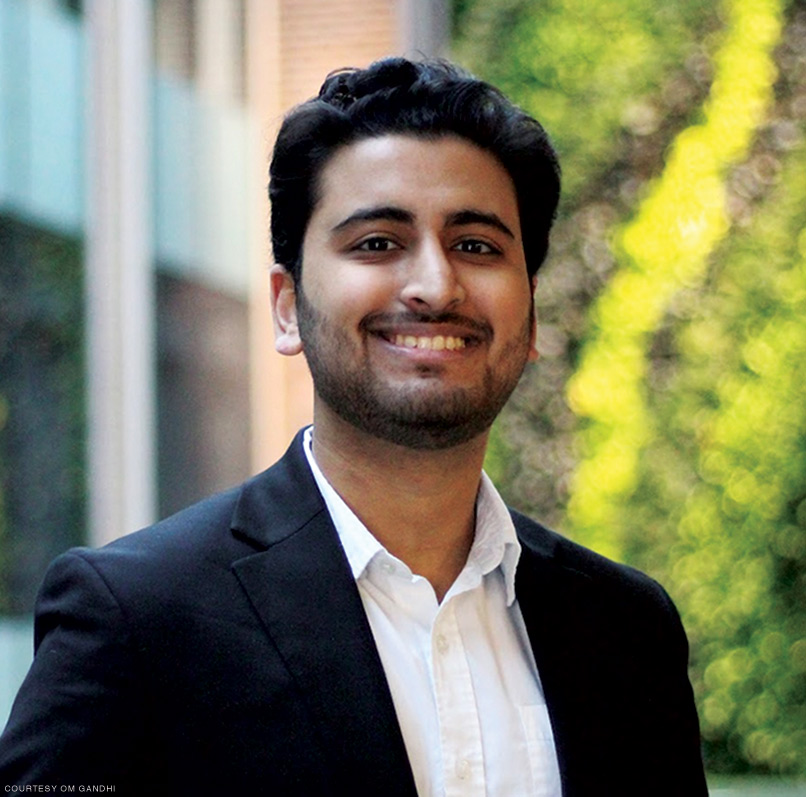
After a powerful encounter, a Penn senior changes course and wins a Rhodes Scholarship to pursue cancer research.
Penn senior Om Gandhi was selected as a 2025 Rhodes Scholar to continue his cancer research at Oxford University in England. The senior from Barrington, Illinois, is double majoring in neuroscience and health and societies, with a public health concentration, and double minoring in chemistry and healthcare management—while also pursuing a master’s degree in bioengineering.
One of only 32 American Rhodes Scholars, Gandhi recalled “completely losing feeling in my legs” when the announcement was made. “So I rested my back against the wall,” he said, “because I was like, Did they actually say my name? And then just a wave of pure excitement and joy.”
The prestigious scholarship had not exactly been at the top of his mind when he started out at Penn. Nor had cancer research. As a freshman, he was more interested in policy, philosophy, and ethics, and did some volunteer work in Philadelphia’s Kensington neighborhood, helping people with opioid use disorder get basic needs like food and clean needles. It was while volunteering there that he met a woman who had lost her baby to neuroblastoma, a cancer in nerve cells, which led to the dissolution of her marriage and the start of her heroin addiction. Hearing her story, and others at the Prevention Point harm reduction center, made a powerful impression on Gandhi about the destructive power of cancer, especially in children, and how it can upend entire families. “I think cancer really is a disease of broken hopes, dreams, and just devastating stories,” he said. “And I think that’s what’s so compelling about trying to fight the disease—because one day I hope that the stories I hear will be far, far more positive than the stories of all the devastated lives.”
Gandhi pivoted to conducting research on new cancer therapies and diagnostic approaches at Penn Medicine’s Center for Cellular Immunotherapies and in its neurosurgery and radiology departments, as well as the Children’s Hospital of Philadelphia’s Center for Childhood Cancer Research. He says that the woman he met in Kensington, who is now in rehab, is never far from his mind. And he is encouraged by hopeful developments in cancer research, both in terms of medical advances and public health strategies.
Gandhi said that he is motivated to “bridge the gap between the lab bench and the bedside” by translating research into patient care. “I want to make sure that all these therapies actually get out of the lab and into the clinic,” he explained. “That’s what I really hope to dedicate the rest of my career to.”
Even as he is “really, really excited” about heading off to England with new questions to explore, Gandhi expressed gratitude for the places and people that “crystalized” his journey forward. His Penn mentors encouraged him to apply for the Rhodes Scholarship, and the University’s Center for Undergraduate Research and Fellowships (CURF) guided him every step of the way.
“This award is such a testament to the Penn community,” he emphasized—“to the power of mentorship, to the power of organizations within Penn that really only have one mission, which is to help our students make the best of themselves.”
—Hannah Chang C’27




